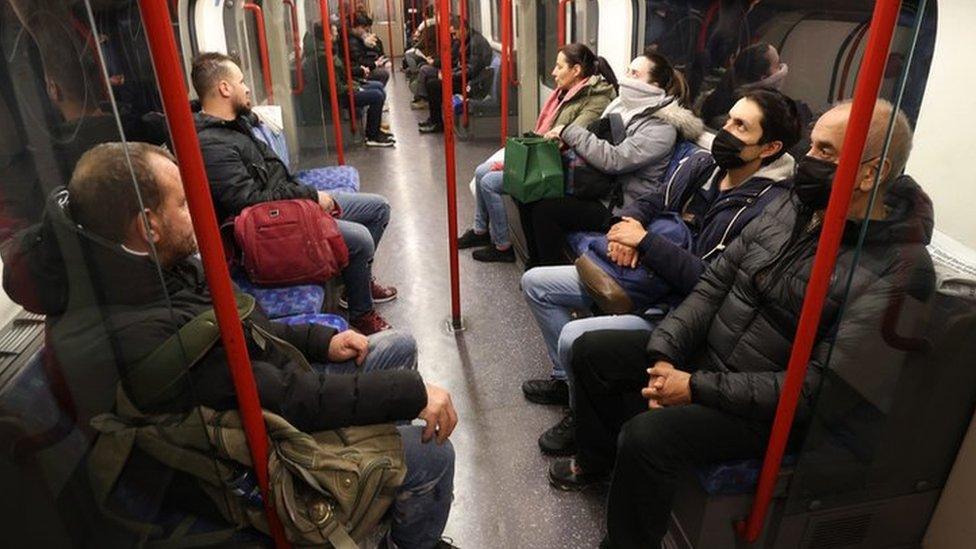London council tax and transport fares to increase
- Published
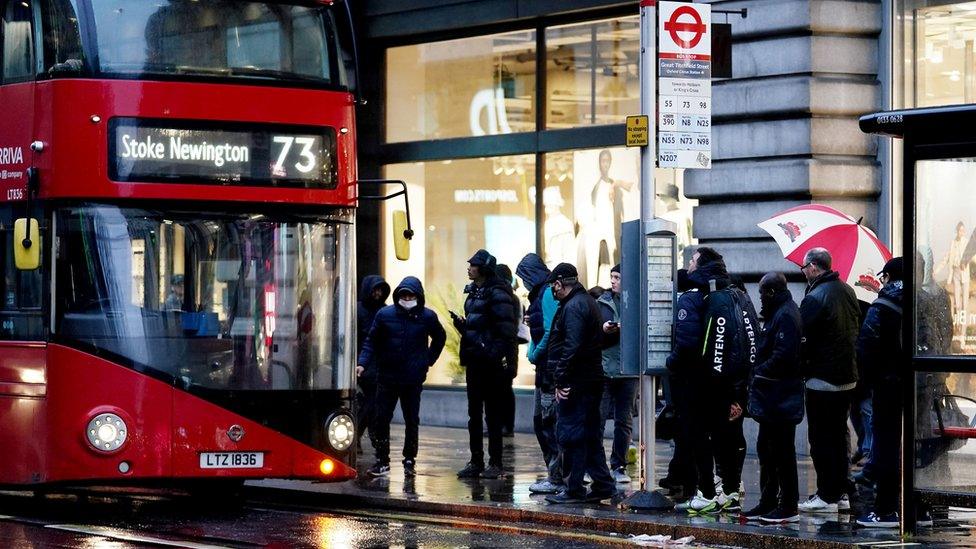
Transport fares are due to rise by just under 6% in March alongside the council tax rise
Londoners will face Sadiq Khan's biggest council tax rise to date at the same time as a record increase in transport costs.
The mayor plans to raise the precept - his share of council tax - by just under 10%, while fares will increase by nearly 6% in March.
Mr Khan said it had "effectively been forced upon us by the government".
But the Conservatives blamed the "eye-watering and unaffordable" increases on the mayor's "financial mismanagement".
The precept is a separate amount that the mayor can add on to everyone's council tax bills in order to help pay for services provided by the Greater London Authority.
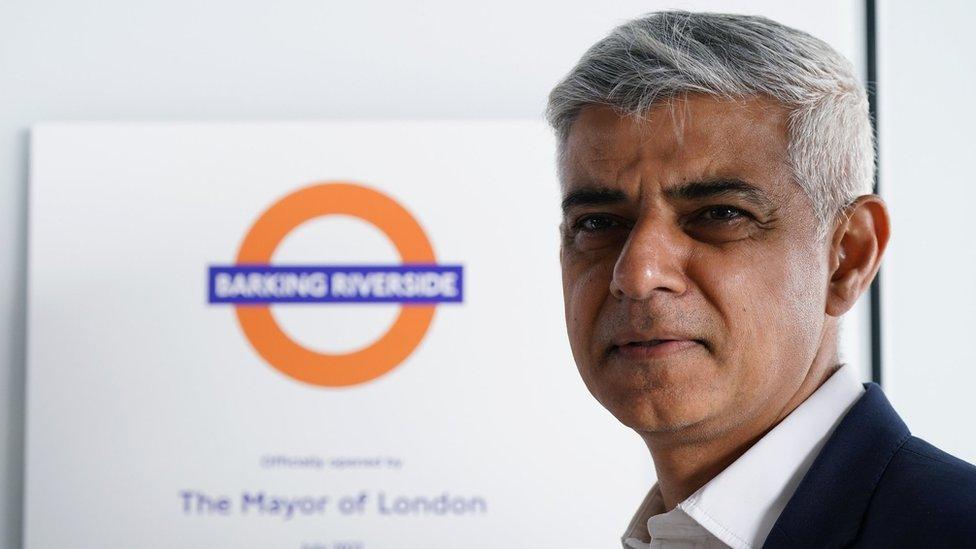
Mayor Sadiq Khan said the tax rises would "protect" public services
The mayor requires an increase of £38.55 on yearly council tax bills from 1 April, the most he has raised it in his six years in office.
It means the typical household will pay just over £434 to the Greater London Authority, mainly for transport, policing and the fire brigade, as well as the running of City Hall. This is on top of what households pay their local councils for services.
As a condition of the deal the mayor struck with the government last autumn to revive finances post-Covid, £20 of everyone's extra council tax contribution will go on transport, bringing in £60m to Transport for London's coffers.
City Hall says it will ensure that free travel for teenagers and the over-60s will be preserved.
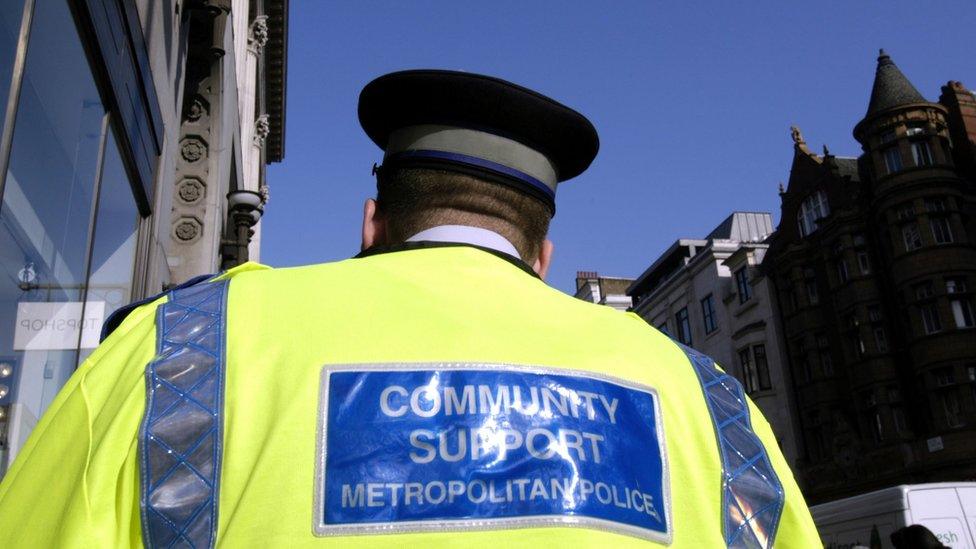
Five hundred new PCSOs are to be recruited
Every household will pay £15 a year towards policing, raising £50m - half of which will be spent on the recruitment of 500 police community support officers (PCSOs).
That will add to the current team of 1,000 PCSOs which City Hall hopes will revive the status of the job and provide a more visible uniformed presence in communities at a cost fitting current budgetary constraints.
Fares on the Tube, trains and buses will go up by the same as those on national rail services - another condition of the controversial funding deal agreed with the government.
While a single bus fare will increase by 10p to £1.75, the daily cap on the buses will go up from £4.95 to £5.25 and the seven-day bus and tram pass rises from £23.30 to £24.70.
On the rails, a single Tube journey in Zone 1 will rise by 30p, the cap on Zone 1-4 weekly travel will go up by £3.50, the daily Zone 1-6 cap rises from £14.10 to £14.90, and the weekly Zone 1-6 cap goes from £70.50 to £74.50.
'The last thing I want to do'
Explaining the rise in the precept, Mr Khan told the BBC: "Raising council tax is the last thing I want to do. The only reason we're considering raising council tax is because of the government's refusal to properly fund vital services in London like our police service.
"If we don't raise council tax it means having to have fewer officers on our streets, which means the progress made on reducing violent crime could be undone."
Blaming "12 years of austerity" he also said both the fare increases and council tax rises had been "effectively been forced upon us by the government".
"What we're trying to do in City Hall is fill the massive black hole left by government cuts."
'Cost of Khan crisis'
Peter Fortune, deputy leader of the GLA Conservatives, said London was "now facing a major cost of Khan crisis".
"Sadiq Khan's council tax will have risen 57% since he was elected, as he hits Londoners with another big increase in fares and a ULEZ tax that targets the poorest," he said.
"The mayor wants to impose an eye-watering and unaffordable cost of living burden on Londoners to compensate for his own financial mismanagement."
Nickie Aiken, Conservative MP for Cities of London & Westminster, said the mayor was "costing Londoners money".
She said: "In a cost of living crisis, when people are desperately trying to make the end of the month work for them for their pay, he's putting up taxes."
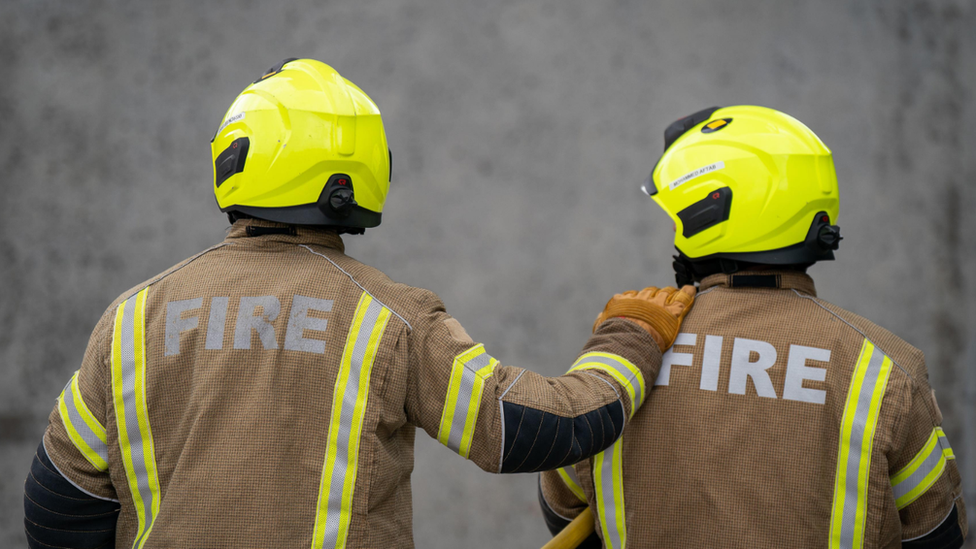
The precept helps fund services like London Fire Brigade
Meanwhile, the Met Police has welcomed the additional community support officers which will be provided by the increase.
Assistant Commissioner Louise Rolfe said: "Community policing is the Met's foundation and we will do everything we can to make our service to communities as strong as possible, through visible policing in neighbourhoods with police officers and PCSOs - who know what matters to local people - by reducing local crime, and building strong, trusted, local partnerships to fix local problems."
However, the Centre for London think tank said it was "concerned" at the increase in bus fares, adding that "the people who use buses the most are often those with the lowest incomes, who are least able to cope with rising costs".

Follow BBC London on Facebook, external, Twitter , externaland Instagram, external. Send your story ideas to hellobbclondon@bbc.co.uk, external
Related topics
- Published16 December 2022
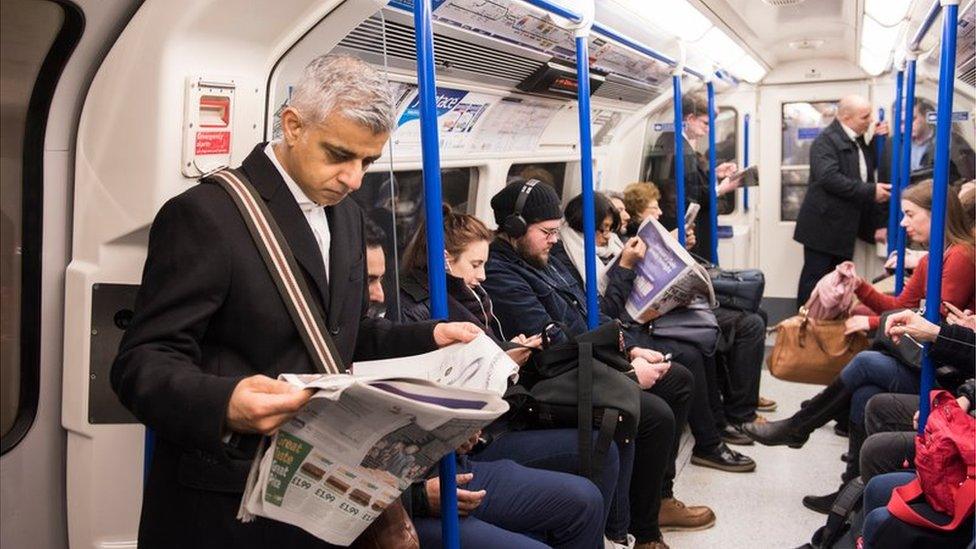
- Published13 December 2022
